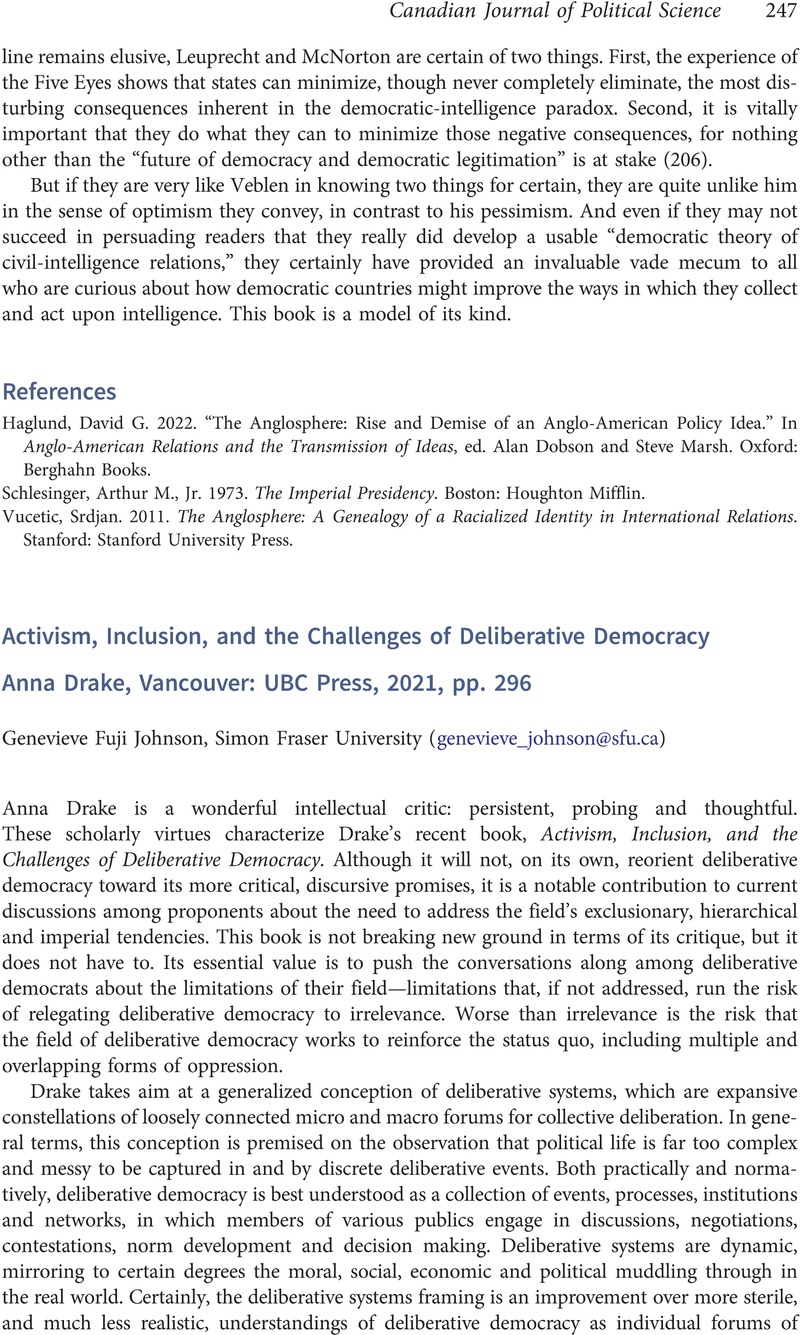No CrossRef data available.
Article contents
Activism, Inclusion, and the Challenges of Deliberative Democracy Anna Drake, Vancouver: UBC Press, 2021, pp. 296
Review products
Activism, Inclusion, and the Challenges of Deliberative Democracy Anna Drake, Vancouver: UBC Press, 2021, pp. 296
Published online by Cambridge University Press: 07 March 2023
Abstract
An abstract is not available for this content so a preview has been provided. Please use the Get access link above for information on how to access this content.

- Type
- Book Review/Recension
- Information
- Canadian Journal of Political Science/Revue canadienne de science politique , Volume 56 , Issue 1 , March 2023 , pp. 247 - 249
- Copyright
- Copyright © The Author(s), 2023. Published by Cambridge University Press on behalf of the Canadian Political Science Association (l’Association canadienne de science politique) and/et la Société québécoise de science politique


